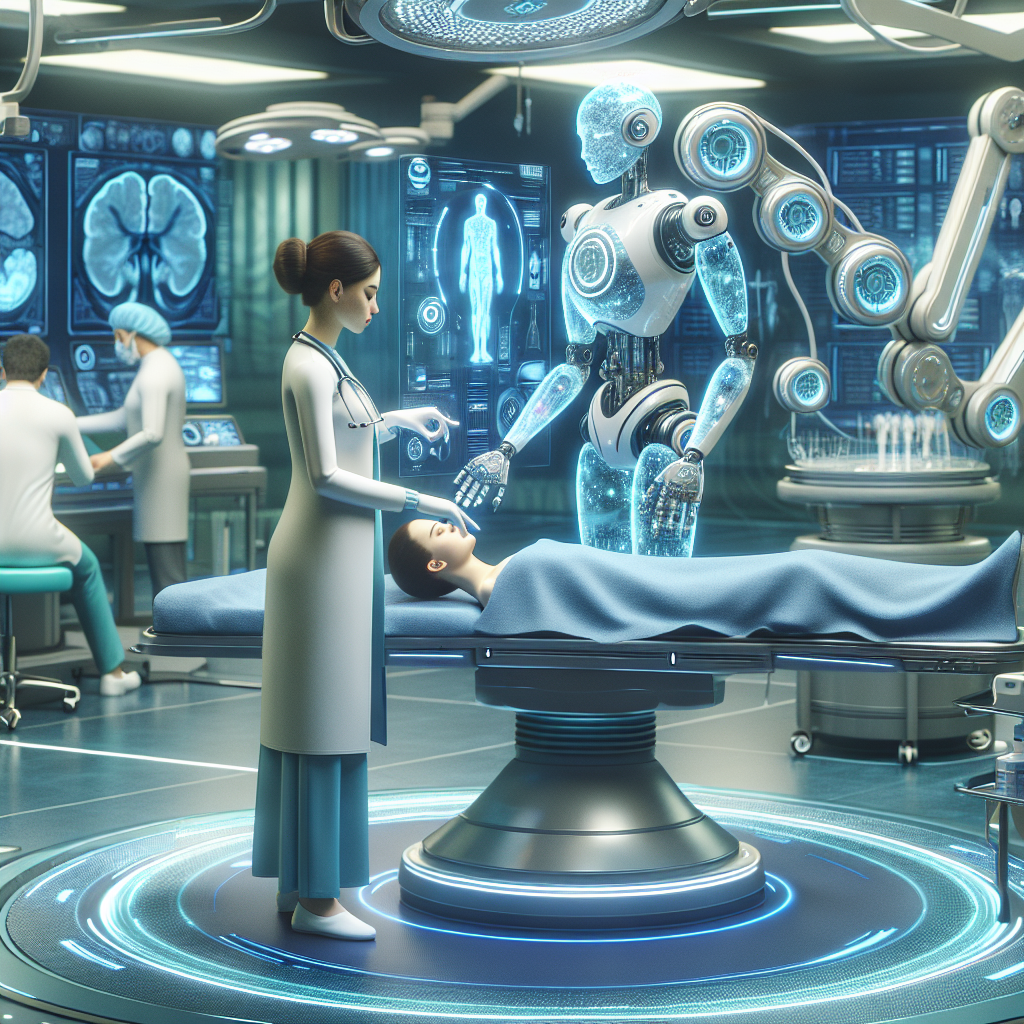The Future of Medicine: AI in Healthcare
Artificial Intelligence (AI) has transformed many industries, and healthcare is no exception. AI has the potential to revolutionize the way we diagnose, treat, and manage diseases, ultimately improving patient outcomes and reducing healthcare costs. From early detection of diseases to personalized treatment plans, AI is poised to play a significant role in the future of medicine.
AI in Diagnostics
One of the most promising applications of AI in healthcare is in diagnostics. AI algorithms can analyze medical images, such as X-rays, MRIs, and CT scans, with incredible speed and accuracy. This can help radiologists detect diseases like cancer at an early stage, leading to better treatment outcomes. AI can also be used to analyze laboratory test results, helping healthcare providers make more informed decisions about patient care.
In addition to imaging and lab tests, AI can also be used to analyze patient data, such as electronic health records and genetic information. By analyzing this data, AI algorithms can help identify patterns and trends that may be missed by human healthcare providers. This can lead to more accurate diagnoses and better treatment plans for patients.
AI in Personalized Medicine
Another area where AI is making a significant impact in healthcare is in personalized medicine. By analyzing a patient’s genetic information and medical history, AI algorithms can help healthcare providers develop personalized treatment plans that are tailored to the individual patient. This can lead to more effective treatments with fewer side effects, ultimately improving patient outcomes.
AI can also be used to predict how patients will respond to different treatments, allowing healthcare providers to choose the most effective treatment for each patient. This can help reduce trial-and-error in treatment plans, saving time and money for both patients and healthcare providers.
AI in Remote Monitoring
With the rise of telemedicine and remote patient monitoring, AI is playing an increasingly important role in monitoring patients outside of traditional healthcare settings. AI algorithms can analyze data from wearable devices, such as fitness trackers and smartwatches, to track a patient’s vital signs and detect any abnormalities. This can help healthcare providers monitor patients with chronic conditions, such as diabetes or heart disease, and intervene early if necessary.
AI can also be used to analyze data from home monitoring devices, such as smart scales and blood pressure monitors. This can help patients and healthcare providers track changes in a patient’s health over time, allowing for early intervention if needed.
FAQs
Q: How is AI being used in healthcare today?
A: AI is being used in healthcare in a variety of ways, including diagnostics, personalized medicine, and remote monitoring. AI algorithms can analyze medical images, laboratory test results, and patient data to help healthcare providers make more informed decisions about patient care.
Q: Will AI replace healthcare providers?
A: While AI has the potential to improve healthcare outcomes and reduce costs, it is unlikely to replace healthcare providers entirely. AI is best used as a tool to assist healthcare providers in making more informed decisions about patient care.
Q: Is AI in healthcare secure?
A: Data security and patient privacy are top priorities in healthcare, and AI systems must adhere to strict regulations to ensure patient data is protected. Healthcare providers must ensure that AI systems are secure and compliant with regulations like HIPAA.
Q: What are the challenges of implementing AI in healthcare?
A: Some of the challenges of implementing AI in healthcare include data privacy concerns, lack of interoperability between systems, and resistance to change from healthcare providers. However, with proper planning and training, these challenges can be overcome.
In conclusion, AI has the potential to revolutionize the way we diagnose, treat, and manage diseases in healthcare. From improving diagnostics to personalized medicine and remote monitoring, AI is poised to play a significant role in the future of medicine. By harnessing the power of AI, healthcare providers can provide better care to patients and ultimately improve patient outcomes.

